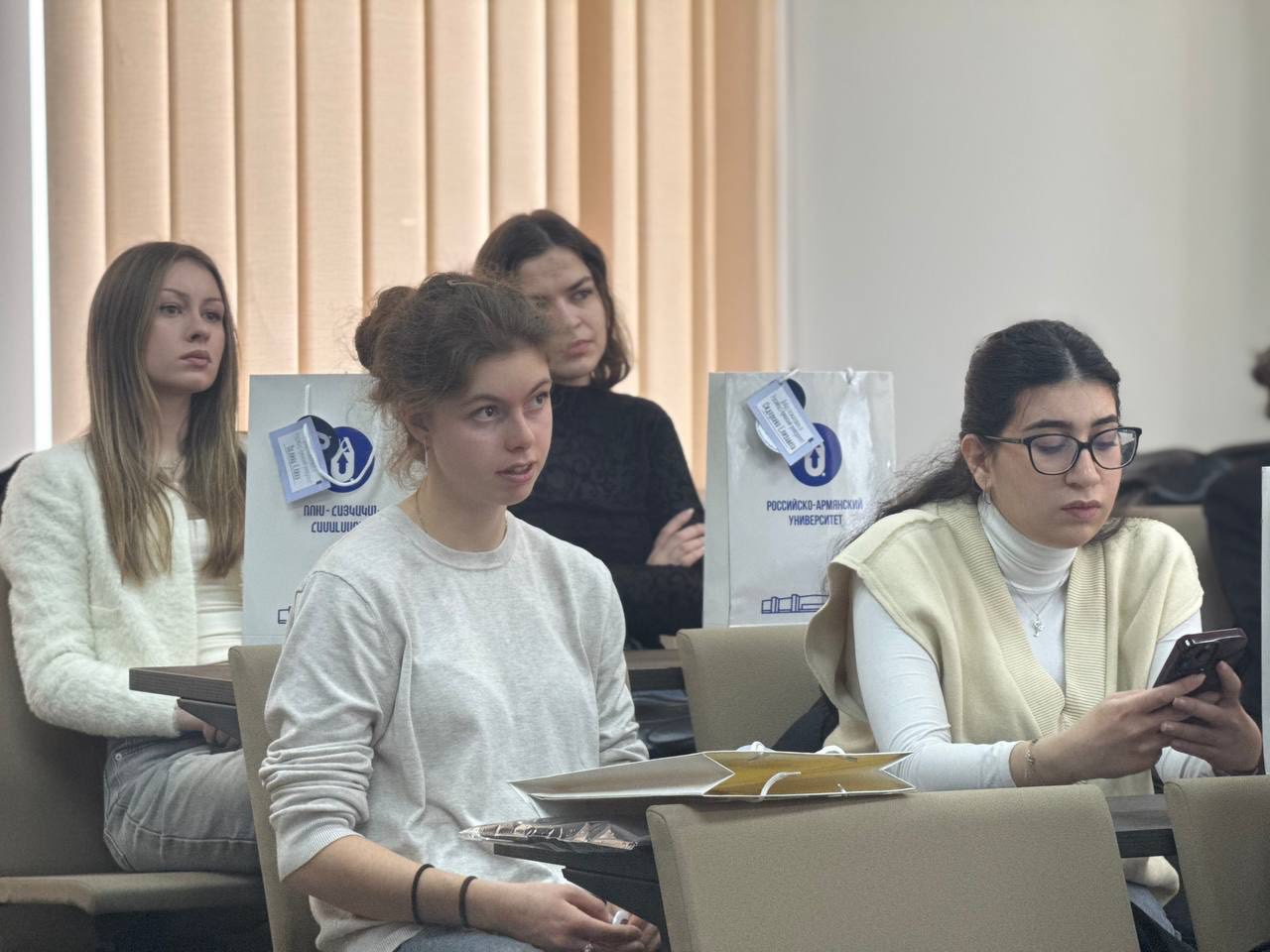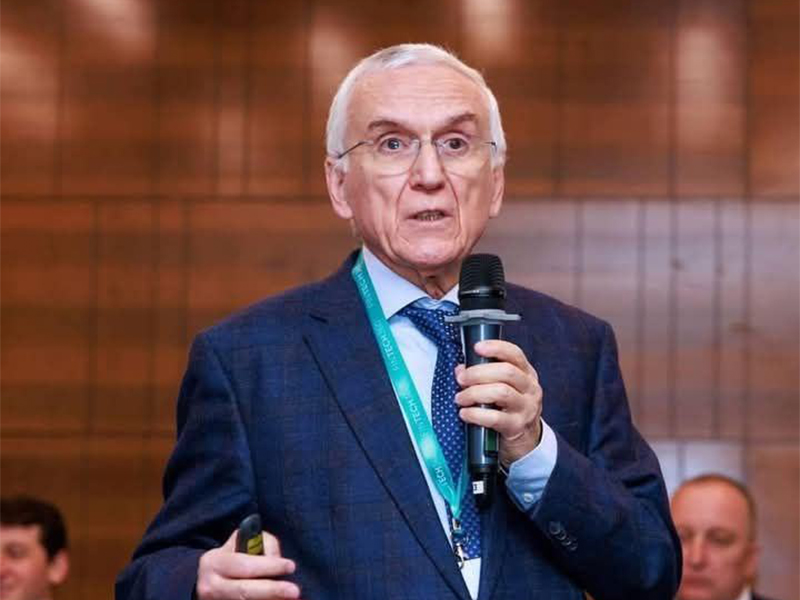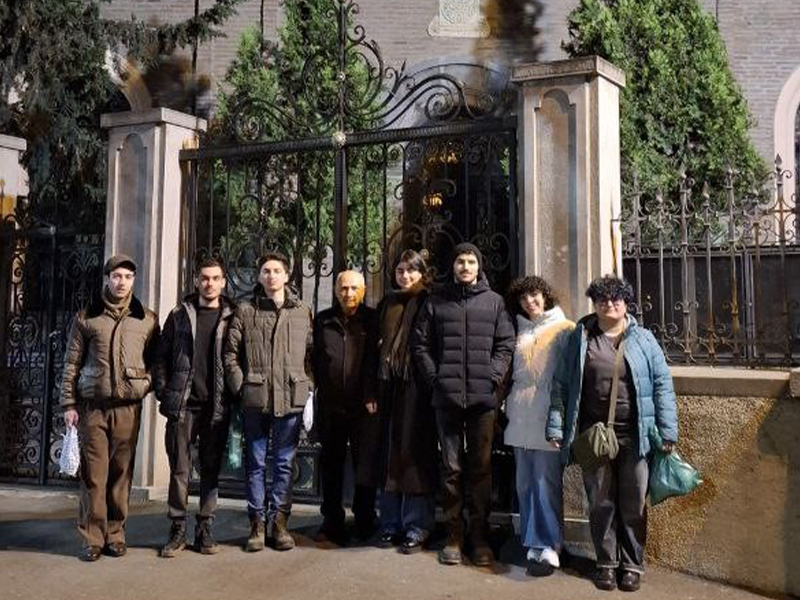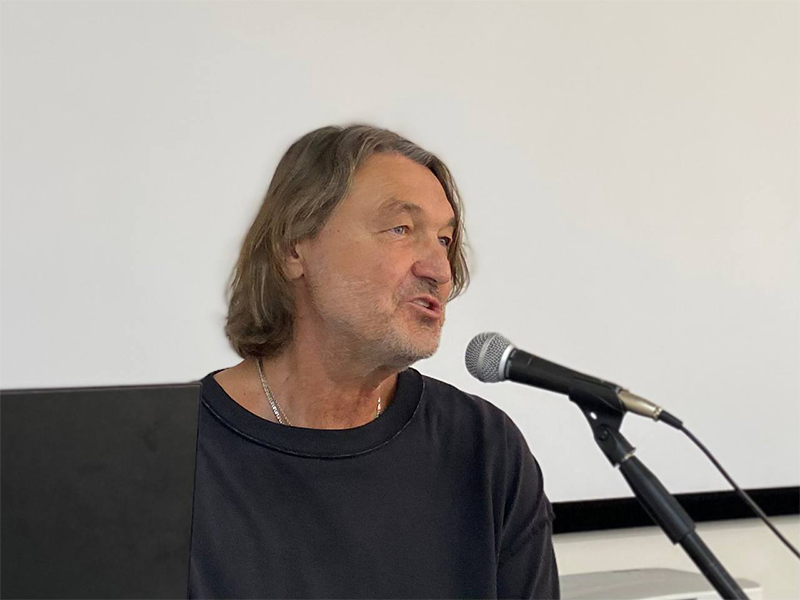
- 09 Sep
- 2024
Vladislav Otroshenko Shared Fascinating Facts about Gogol's Life and Work with RAU Students
Writer and literary historian Vladislav Otroshenko delivered a lecture at RAU titled "The Burning of the Second Volume of “Dead Souls”: Madness or an Artist’s Feat?"
As part of the program "Russia at the Yerevan Book Festival", writer and literary historian Vladislav Otroshenko delivered a lecture at RAU on September 6, titled "The Burning of the Second Volume of “Dead Souls”: Madness or an Artist’s Feat?"
Vladislav Otroshenko took the audience on a journey into the "mysterious world" of Nikolai Gogol. He spoke about the writer’s life in Rome, his unusual habits, and the story behind the destruction of the second volume of “Dead Souls.”
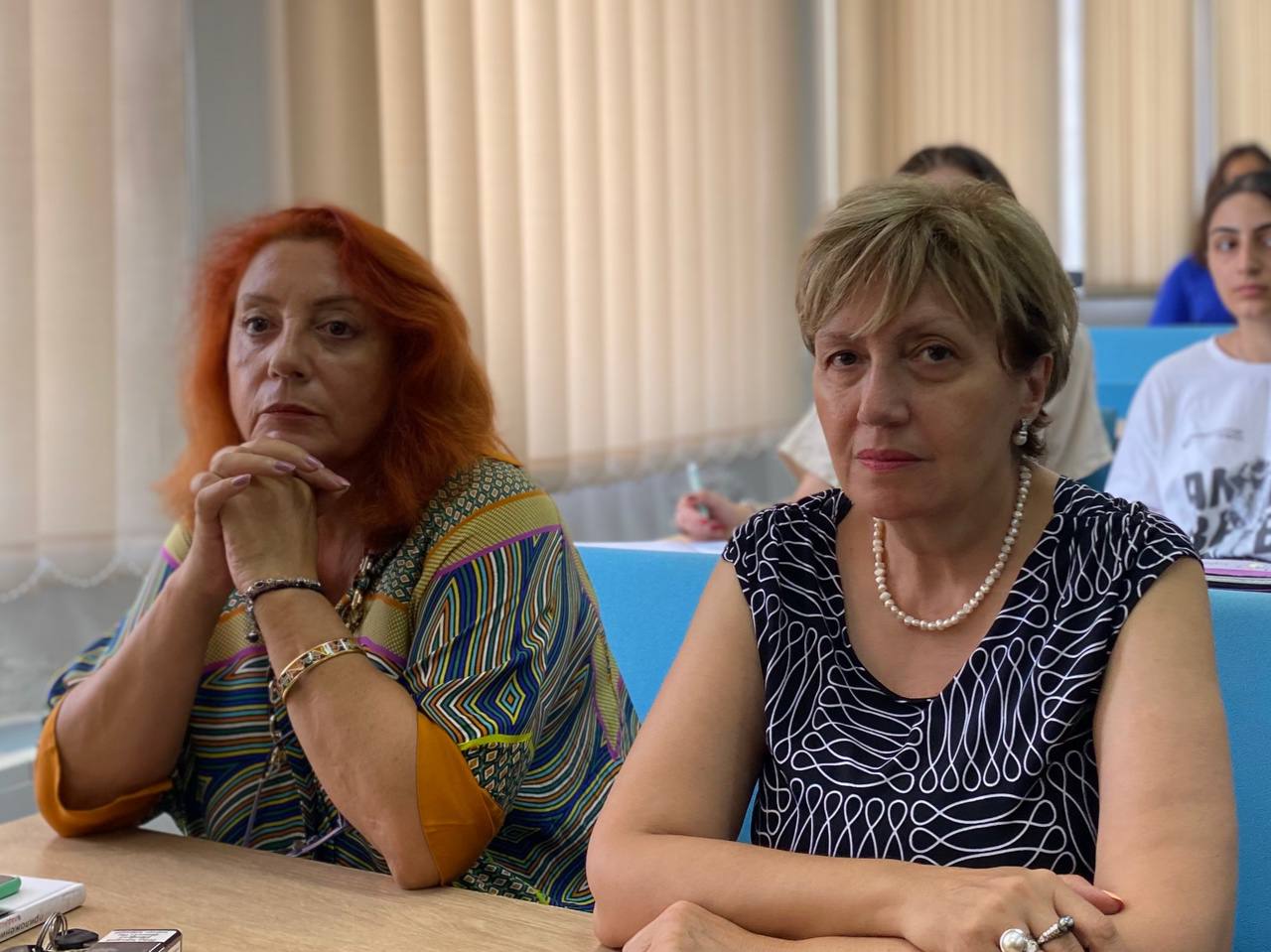 According to literary scholars, “Dead Souls” is one of the most significant works of Russian literature. However, on the night of February 11-12, 1852, Gogol burned the manuscript of the second volume of “Dead Souls”, and the act of burning a ready-to-publish work has raised and continues to raise the question: was this madness or an artist’s feat? As Vladislav Otroshenko mentioned during the lecture, understanding this event requires examining the context in which it occurred.
According to literary scholars, “Dead Souls” is one of the most significant works of Russian literature. However, on the night of February 11-12, 1852, Gogol burned the manuscript of the second volume of “Dead Souls”, and the act of burning a ready-to-publish work has raised and continues to raise the question: was this madness or an artist’s feat? As Vladislav Otroshenko mentioned during the lecture, understanding this event requires examining the context in which it occurred.
The lecturer drew attention to the peculiarities of Gogol's biography, which continue to spark debates among literary scholars and society, and emphasized the significance of his works for modern readers. Gogol had many phobias; for example, he was terribly afraid of thunderstorms and being buried alive. However, as Vladislav noted, Gogol did not fear death itself. In his book “Gogoliana”, the writer unveils the mysteries and symbolism hidden in Gogol’s works, urging readers to look beyond the surface and uncover new layers of meaning in his writings.
It is worth noting that Vladislav Otroshenko is a writer, essayist, and literary historian. His first prose work was published in 1987. Otroshenko is known as a mystifier and a master of expression and grotesque, widely recognized abroad, particularly in France and Italy. He has lectured at universities in both countries, and numerous French and Italian translations of his works have been published. In 2004, he received the prestigious Italian literary award Grinzane Cavour, and his collection “Gogoliana and Other Stories” took the first prize at the Fifth International Berlin Book of the Year Award in 2014. His novel “Sukhovo-Kobylin” (2014), an archival investigation into the life of one of the greatest figures in Russian drama, became a bestseller. Otroshenko has won and been a finalist for numerous literary awards, both in Russia and abroad, including the Yasnaya Polyana, Belkin Prize, Maxim Gorky Prize, Andrei Bely Prize, and the Chekhov Gift Award. In 2013, Vladislav Otroshenko was awarded a scholarship and became a resident of the French International Writers’ House in Saint-Nazaire (Maison des écrivains étrangers et traducteurs). His novel “Appendix to a Photo Album” (translated as “Mes treize oncles”), published in Paris in 2012, garnered attention in major national media outlets such as “Le Monde”, “Figaro”, “Le Rideau”, and others. Otroshenko's works have been translated into English, French, Italian, German, Chinese, Hungarian, Slovenian, Lithuanian, Finnish, Serbian, Slovak, Armenian, Macedonian, and Estonian.
The event was organized by the Institute of Philology and Intercultural Communication at RAU.
Translated by Angelina Zandiyan,
I year Master’s Student in Translation & Interpretation, RAU






